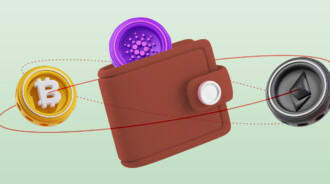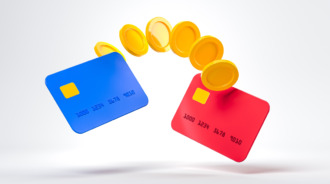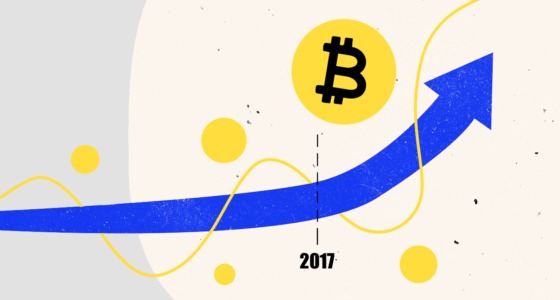

Financial derivatives may be a term you are familiar with, whether you are new to investing or looking for strategies to manage your assets. Although they are a contract utilized in trading, derivatives are not risk-free. This article will discuss the concept and types of derivatives and their advantages and disadvantages.
What are Derivatives?
A derivative is an option or security that derives its value from the price of another underlying asset. Derivatives manage risks in financial markets, hedge against price changes, and can be traded on exchanges. A derivative is a financial instrument whose value is based on the value of something else. In other words, it’s an option on an underlying asset.
If you wanted to protect yourself against rising interest rates, you could buy a call option on bonds with a strike price higher than your current borrowing rate. Then, if interest rates rise, your bond portfolio will not lose as much money as if you were short-term borrowing at those higher rates.
In the same way that derivatives can be used for hedging purposes, they also can be used to speculate (i.e., betting on future prices). For example, if you believe that oil prices will rise shortly and want to profit from this belief by purchasing a call option with a strike price higher than today’s market level for oil products such as gasoline or diesel fuel oil (the spread between the two can range from $0 up to $10 per barrel).
Understanding Derivatives
Derivatives are among the most important financial instruments in the world today. Hedgers use them to protect themselves against price movements in underlying assets, by speculators to bet on future price movements, and by arbitrageurs to take advantage of pricing discrepancies. Derivatives are contracts between two parties that derive their value from an underlying asset. Futures are agreements to buy or sell an asset at a specific price on a particular date. Options give the holder the right, but not the obligation, to buy or sell an asset at a certain price on a certain date in the future. Swaps are agreements to exchange one asset for another at a certain price on a date.
A derivative contract’s value depends on the underlying asset’s price. If the price of the underlying asset goes up, the value of the derivative contract will go up; if the price of the underlying asset goes down, the value of the derivative contract will go down. The usage of derivatives is appropriate for arbitrage, speculation, and hedging. Hedging is when you use derivatives to protect yourself against adverse price movements in an underlying asset.
Special Consideration
Derivative financial instruments derive value from an underlying asset. Futures, options, and swaps are examples of common derivatives. Derivatives can be used for various purposes, including hedging risk, generating income, and speculating on future price movements. Due to the nature of derivatives, a few special considerations must be taken into account when dealing with them. For one, derivatives are often highly leveraged instruments, meaning that a slight movement in the underlying asset can result in a significant gain or loss on the derivative position.
As a result, it can magnify both profits and losses, so it is important to use proper risk management techniques when trading derivatives. Another consideration is that derivatives are often traded on margin. It means that only a portion of the contract’s full value needs to be paid upfront, with the rest being due at some future date. It can provide significant leverage, but it also means that losses can exceed the initial investment if the market moves against the trader.
Lastly, knowing the potential for fraud when trading derivatives is essential. Due to their complex nature and relatively unregulated markets, there have been several high-profile cases of fraud involving derivatives. Always do your research and trade with caution to avoid becoming a victim of fraud.
Note! “Over-the-counter” options refer to derivatives that are traded between two businesses or traders that are acquainted. They are also traded via a middleman, typically a sizable bank.

Types of Derivatives
The most common types of derivatives are options and futures. Other types of derivatives include swaps, forwards, and contracts for difference.
Futures
Futures contracts are traded on an exchange; a party agrees to purchase a given amount of the security or commodity and take delivery on a specific date. A futures contract is an agreement to buy or sell an asset at a specified price in the future. The fair value of fixed-price commodities contracts will vary with changes in underlying costs, as the contract’s prices are not prevailing market prices on the date of future transactions. In typical futures and options transactions, a trader pays only the difference between the agreed-upon contract price and the market price.
Cash Settlements of Future
Cash settlement is used in Futures and Options Trading to settle the contract when it expires. In the case of Futures and Options, at a preset date of settlement, a contracts seller can choose either to deliver the underlying assets (which is called a physical settlement) or can settle simply the position net of cash (i.e., the buyer of a sugarcane futures contract, wishing to settle the contract with cash, would need to pay the difference between the spot price of the contract at pre-decided settlement date and the pre-decided futures price.
When it is not feasible to physically deliver an instrument when it is executed or at maturity, derivatives transactions are settled in cash. Unlike most options and futures contracts, which are settled in cash, as mentioned above, physical delivery is a more popular settlement method for stock options contracts. In the settlement, a buyer or seller must settle his position with cash but not receive the delivery of the underlying security at the end of the contract. Investors were able to infuse capital into derivatives markets as a result.
Forwards
Forward contracts are customizable derivative agreements between two parties that buys or sells assets for a set price at some future date. A forward contract is a non-standardized contract between two parties specifying a price and a quantity of the investment it will deliver in the future. A forward contract, often abbreviated as a forward, is an agreement in which a commodity is purchased or sold for a specified price at a specified future date. In a forward contract, a buyer and a seller agree to buy or sell underlying assets at prices that agree on a selected future date.
With a derivative, both parties agree on the sale at a set price at some future date. Like forwards, futures contracts allow two parties to decide on the execution of the deal on a specific date for a fixed price. The agreed-upon price is called the settlement price and is the same as the forward price when the contract is entered.
Swaps
A financial swap is a derivative contract in which a party trades, or swaps, the cash flows or value of one asset for another. Most derivatives in the swaps are not necessarily based on the flow of money, which may be in a bond or a loan. Instead, these contract swaps are typically used to cover the other side’s investment positions against fluctuating exchange rates. The instruments can be virtually anything, but most swaps involve monetary settlements based on some nominal principal amount.
Options
Options are a form of derivative that gives holders the right, but not the duty, to buy or sell an underlying asset for a preset price. An options contract is a financial contract that gives an investor the right to buy or sell an asset at a predetermined price on a specified date.
In an options contract, the risk for the counterparty is that the seller does not sell or buy the underlying asset as agreed. A further and frequently ignored risk in derivatives like options is counterparty risk. As such, derivatives, including options, are commonly used as hedging vehicles to compensate for risks associated with the asset or portfolio.
Options values are determined by the intrinsic value (the difference between current market rates and the strike prices in the future) + the time value + the price volatility. So made is that call options enable the holder of an option to purchase an asset at a far lower price, then sell it on the market for its current higher market price.
Advantages of Derivatives
The financial markets can take advantage of derivatives in many different ways. Let’s explore some of the advantages of derivatives.
Risk of Hedging Exposure
Since the value of the derivatives is directly correlated with that of the underlying asset, the contracts are mostly employed for risk hedging. An investor might, for instance, purchase a derivative contract whose value fluctuates in the opposite direction of the value of an asset the investor owns; this would allow gains from the derivative contract to balance losses from the underlying asset.
Market Performance
The use of derivative contracts makes it simple to mimic the payback of the assets in India, where derivative trading improves the efficiency of the financial markets. As a result, the prices of the underlying assets and the related derivative often are in equilibrium and aid in preventing arbitrage opportunities.
Price determination of the underlying asset
Derivatives are frequently used to estimate the underlying asset price. For instance, the spot prices of the futures can be used as a rough estimate of the price of a commodity.
Access to markets or assets that are otherwise unavailable
Derivatives can assist businesses in gaining access to markets or assets that are inaccessible. A corporation may be able to get an interest rate that is more advantageous than the interest rates offered by direct borrowing by using interest rate swaps.
Disadvantages of Derivatives
There are some disadvantages of Derivatives.
High Risk
The price of the underlying securities is highly volatile, and high-risk derivatives contracts are subject to a high level of risk. In addition, because derivatives are typically sold on open markets, the prices of these underlying securities, such as shares or metals, constantly fluctuate. Therefore, it carries a significant amount of danger.
Opposite Party Risk
In the case of derivatives traded over the counter, there is a chance that the counterparty will default due to a lack of a due diligence procedure. Compared to exchange derivatives, OTC derivatives lack a standard for due diligence.
Imaginative Elements
Derivatives are a tool used for speculative purposes to generate profits. However, due to the unpredictability and high risk associated with derivatives, significant losses can occasionally result from excessive speculation.
Expertise is required
One of the main issues with trading derivative products is this. Compared to other securities like equities and metals, trading in these products needs more knowledge and competence from investors.
Who are the Market Participants for Derivatives?
There are primarily four categories of market players for derivatives.
Hedgers
Investors that use derivatives to lessen or hedge their risk are known as hedgers. The primary reason investors turn to the derivatives market is hedging. Hedgers prefer the option strategy to lower their chances.
Speculators
Speculators take positions in opposition to anticipated price changes. It entails purchasing the underlying asset and then gambling on its price, which is dangerous. Speculative endeavors try to make big profits.
For instance, a shareholder might anticipate a future decline in share price. To profit from this, the investor will short-sell the share now and repurchase it later when the price decreases.
Arbitrageur
Arbitrage is also a profitable activity using price volatility in various financial markets. By investing in the price differential between the two markets, arbitrageurs benefit. It entails purchasing an asset for less in one market and selling it more in another.
Margin traders
They are another party involved in the derivative market. A trader’s initial deposit is known as the margin while signing a contract.
Frequently Asked Questions (FAQs)
What are Derivatives?
Financial instruments called derivatives are traded on the market and have values based on one or more underlying assets. Security with underlying assets like equities, currencies, commodities, precious metals, stock indexes, etc., gives this security its value. A contract entered into by two or more parties is represented by derivatives.
What are some Examples of Derivatives?
Let’s say that XYZ Inc manufactures cornflakes and that the company must buy corn from Robert Corns, a corn supplier, at the cost of $10 per quintal. XYZ Inc. makes the requisite margin by completing a transaction at $10. However, there is a chance of severe rain, which could ruin the crops Robert Corns planted and, as a result, drive up the price of corn on the market, impacting XYZ’s profit margins. Nevertheless, Robert Corns has employed better farming equipment this year and has taken all necessary precautions to save the crops. As a result, they expect the corn to grow more than usual without suffering rain damage.
As a result, the two parties agreed to set the price of maize per quintal at $10 for six months. After that, XYZ would pay only $10 a quintal, and Robert Corns would be required to abide by the same conditions even if the rain decimated the crops and prices rose.
However, XYZ Inc. would still be paying $10 a quintal, which may be excessive if the price of corn falls in the market – if the demand has increased and the rainfall is not as intense as anticipated. Therefore, it can also impact XYZ Inc’s margins. This forward contract would result in a sure profit for Robert Corns.
What are the main benefits and risks of derivatives?
The main benefits of derivatives are that they can be used to hedge against risk and speculate on an asset’s future price. Derivatives can be used to protect against price changes in the underlying asset, manage risk, and generate additional income. The main risks of derivatives are that they can be complex and difficult to understand and that they can be risky and volatile.
What does trading in derivatives mean?
A derivative is a financial security whose value is based on a crucial resource or collection of resources. Stocks, securities, commodities, financial forms, and market data are the most well-known sources for subsidiaries. Regularly, financiers are used to purchasing these resources. Trading in derivatives refers to the exchange of derivatives or their buying and selling in accordance with specific established agreements.
Conclusion
Instruments called derivatives allow you to arbitrage or hedge. However, there may be some hazards associated with them. Therefore the user should use caution when developing any strategy. It is founded on one or more fundamental principles, but often it is difficult to determine what these principles are worth. They are challenging to price due to their complexity in handling and accounting. Additionally, there is a significant chance that it will commit financial fraud via derivatives, such as Bernie Madoff’s Ponzi scheme.
As leverage, the fundamental way of employing derivatives remains a thrilling yet repulsive financial instrument for investing, and it is essential to utilize it prudently.













